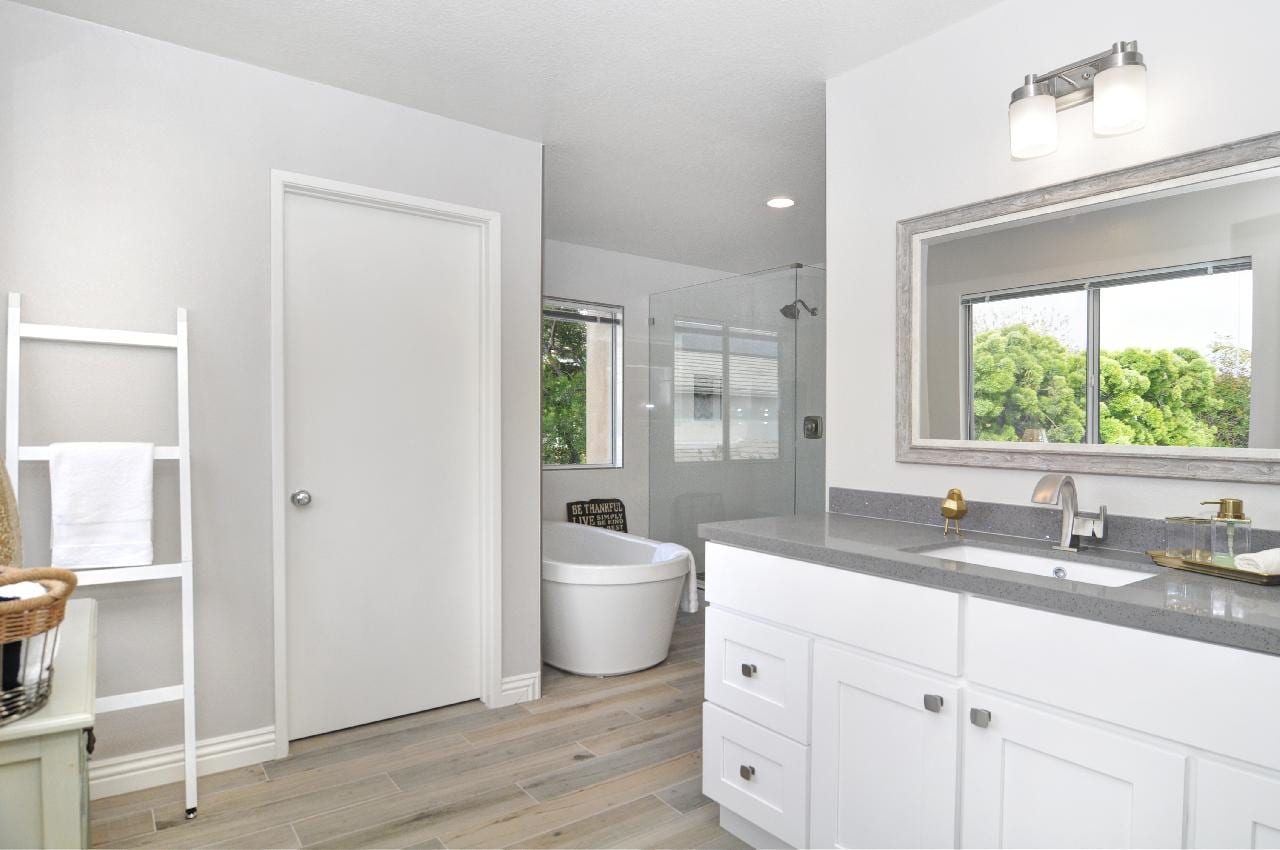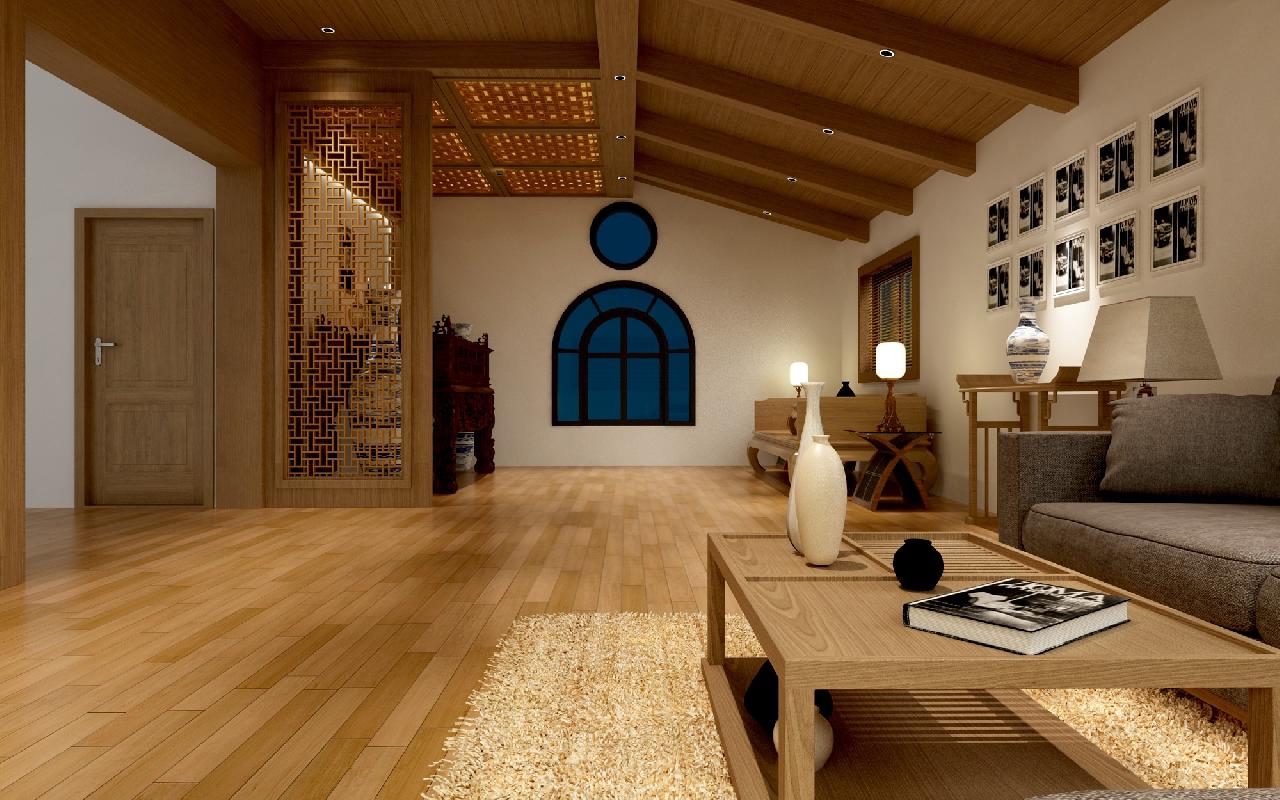In any house, the bathroom is arguably one of the most critical rooms. Its purposes often range from functional to a calming retreat all in a day.
Being the first place where people visit when they wake up in the morning, the bathroom can make or break your mood. For that reason, it’s imperative to have proper lighting in the bathroom to set the mood for the day.
But how exactly should you go about lighting your bathroom? Here are handy tips just for you!
-
Natural light is essential.
Having sufficient natural light in the bathroom reigns supreme. Being the place where we wash and groom, we want to see our face, makeup, hair, and clothes. The real color of all these is best seen in the daylight, so you’ll want to allow sufficient natural light in your bathroom. Whether you include two windows or install a ceiling-to-floor window, natural light will brighten your mood and set the circadian rhythm that helps regulate sleep/wake cycles.
-
Flank the bathroom mirrors with lights
While it’s okay to have LED ceiling lights in the bathroom, they don’t really deliver the much-needed beauty and grooming aspects. If anything, lighting from above can create splotches, shadows, and lines across your face while flossing, putting on makeup, or shaving.
Therefore, you’ll want to flank the bathroom mirrors with the right LED lights instead of lighting from the ceiling. A vanity light, bath bar, or a pair of vertical scones placed on both sides of a mirror can offer the perfect lighting for detailed tasks.
You may even want to consider biological LED lighting solutions, such as those from BIOS lighting, which also have the added benefit of enhancing your circadian rhythm.
-
Use the correct light levels.
Ever wondered just how much lighting is needed in the bathroom? The answer is, “it depends.” Who is using the bathroom and what they are using it for will determine the required light levels.
For instance, shaving after a shower will probably require a lot of lighting – up to 100 foot candles (Fc) – for better visibility. However, just waking up and shuffling into the water closet does not require much light; 10fc is enough.
In the guest or master bathrooms, the ideal lighting fixture should provide sufficient lighting, ideally between 75 and 100 watts of illumination. If you are not sure what the best light levels for your bathroom are, consulting with a well-known lighting provider can help you choose what’s best for you.
-
Don’t forget night lighting.
The bathroom can be used at any time, day and night.
When you wake up in the middle of the night to visit the bathroom, your eyes are often adjusted to the darkness, so you don’t want to blind and disrupt them with too much light. All you need is low lighting (just a few foot candles) to help you maneuver with ease.
For that reason, it’s a good idea to install a low-wattage light that either responds to motion and remains on throughout the night. A 5-watt LED nightlight may be a perfect choice. You could also purchase some plug-in LED motion-sensor nightlights or use some step lights in the wall.
-
Lighting controls are key.
Regardless of your bathroom’s size, having multiple light sources can significantly improve the design. A combination of LED accent spotlights, task lights, downlights, and LED recessed lights will help create a light scheme that cater to different purposes and individuals.
With all these lights, having lighting control is vital for creating the perfect balance between the different layers of light. Ideally, use modern smart lighting controls that allow you to pre-program settings. Most of these smart lighting controls are completely wireless, meaning they will be installed without cables and can oversee audio, security, and thermostats if desired.
Wrapping up
An effective lighting plan for your bathroom is one that will combine all three types of lighting. That is, task – from specific functions, ambient – to illuminate the space, and accent – for that special touch.
However, you must consider who is going to use the bathroom and for what purposes when choosing bathroom lighting. Kids, for example, will need motion-sensitive lighting while the elderly, especially those aged 70 and over, will need 90fc to see properly without being bothered by glare.
Discover more from Futurist Architecture
Subscribe to get the latest posts sent to your email.

![modern apartment [article_title]](https://www.futuristarchitecture.com/wp-content/uploads/2025/03/9-Dramatic-Tips-to-Star-Your-Accent-Wall-828x600.jpg)

